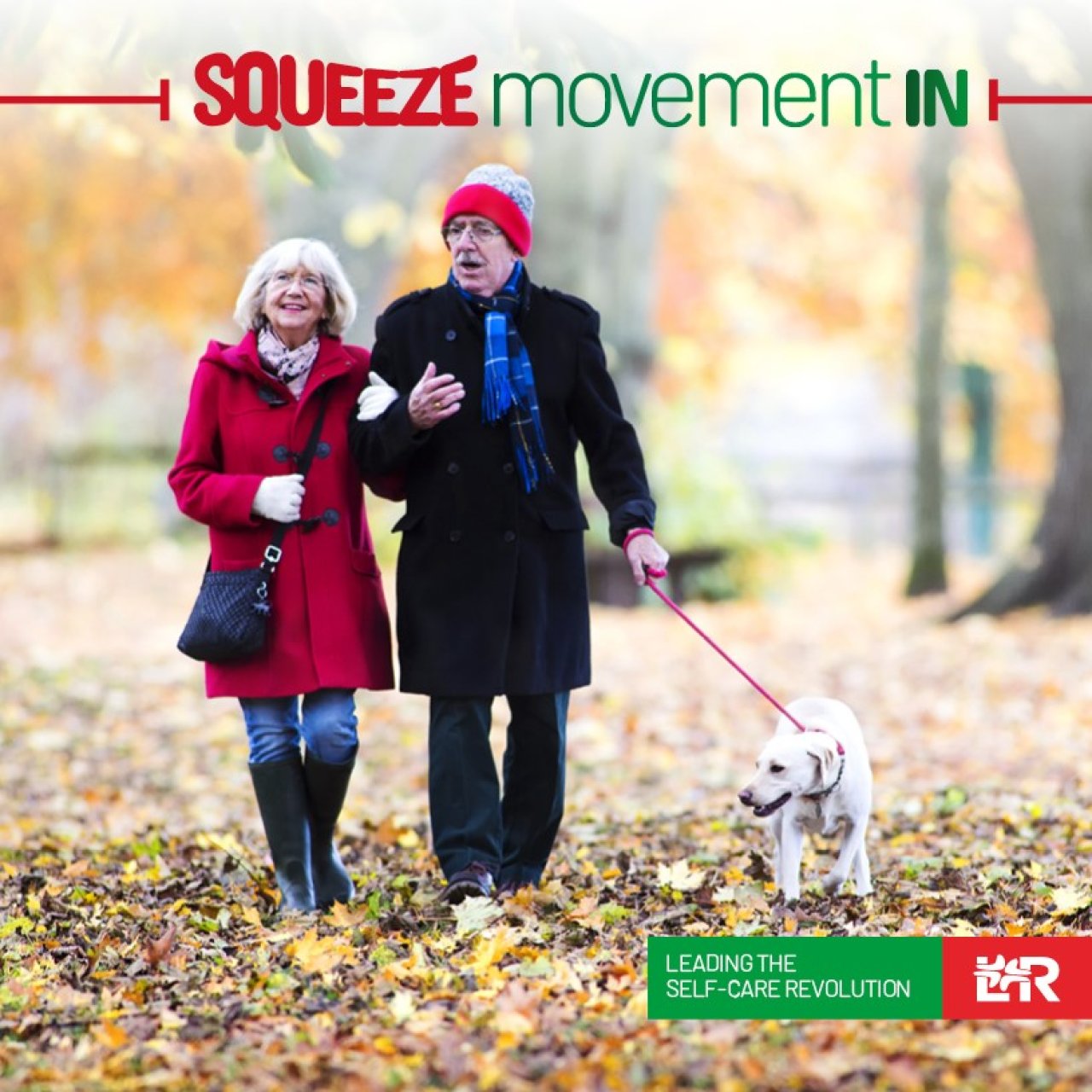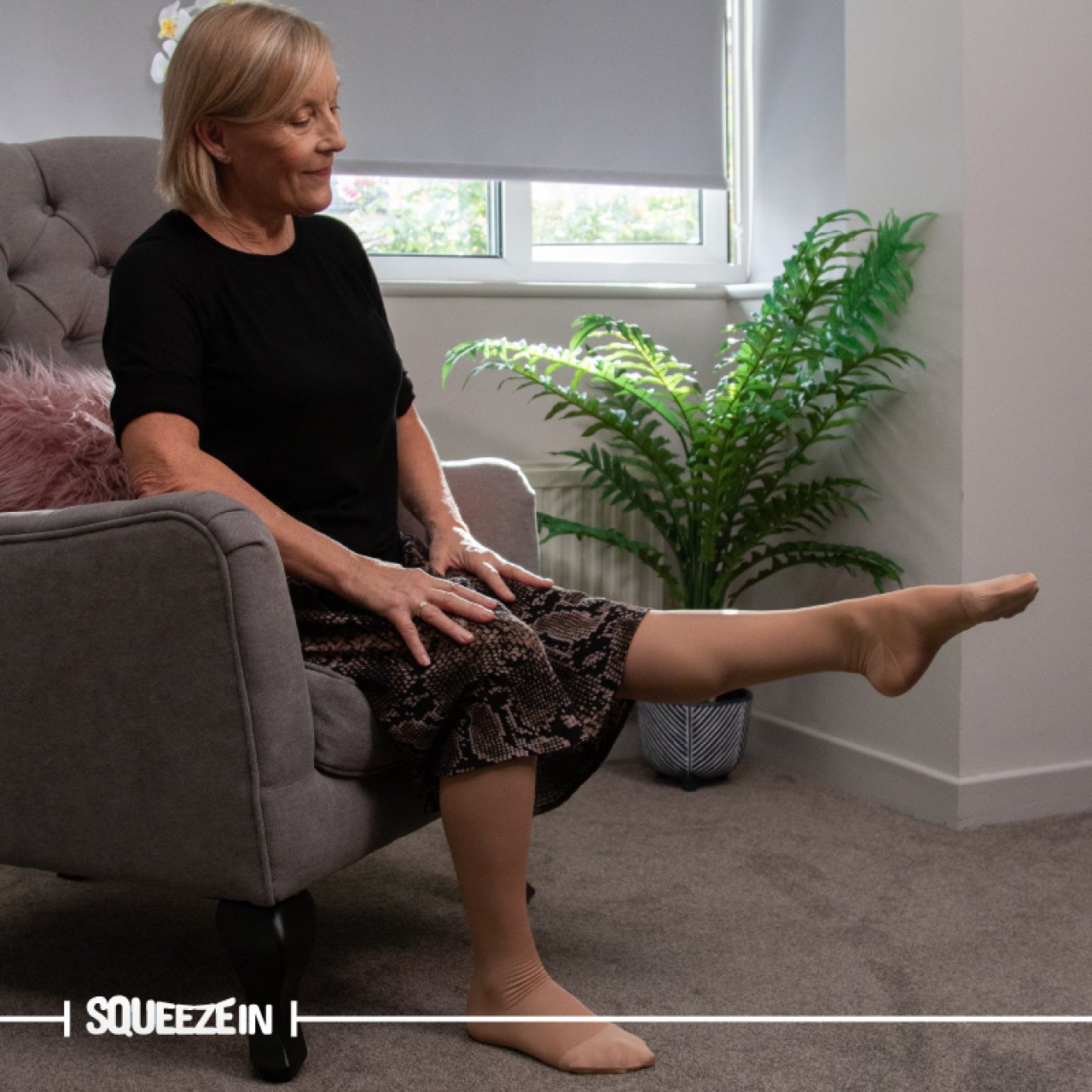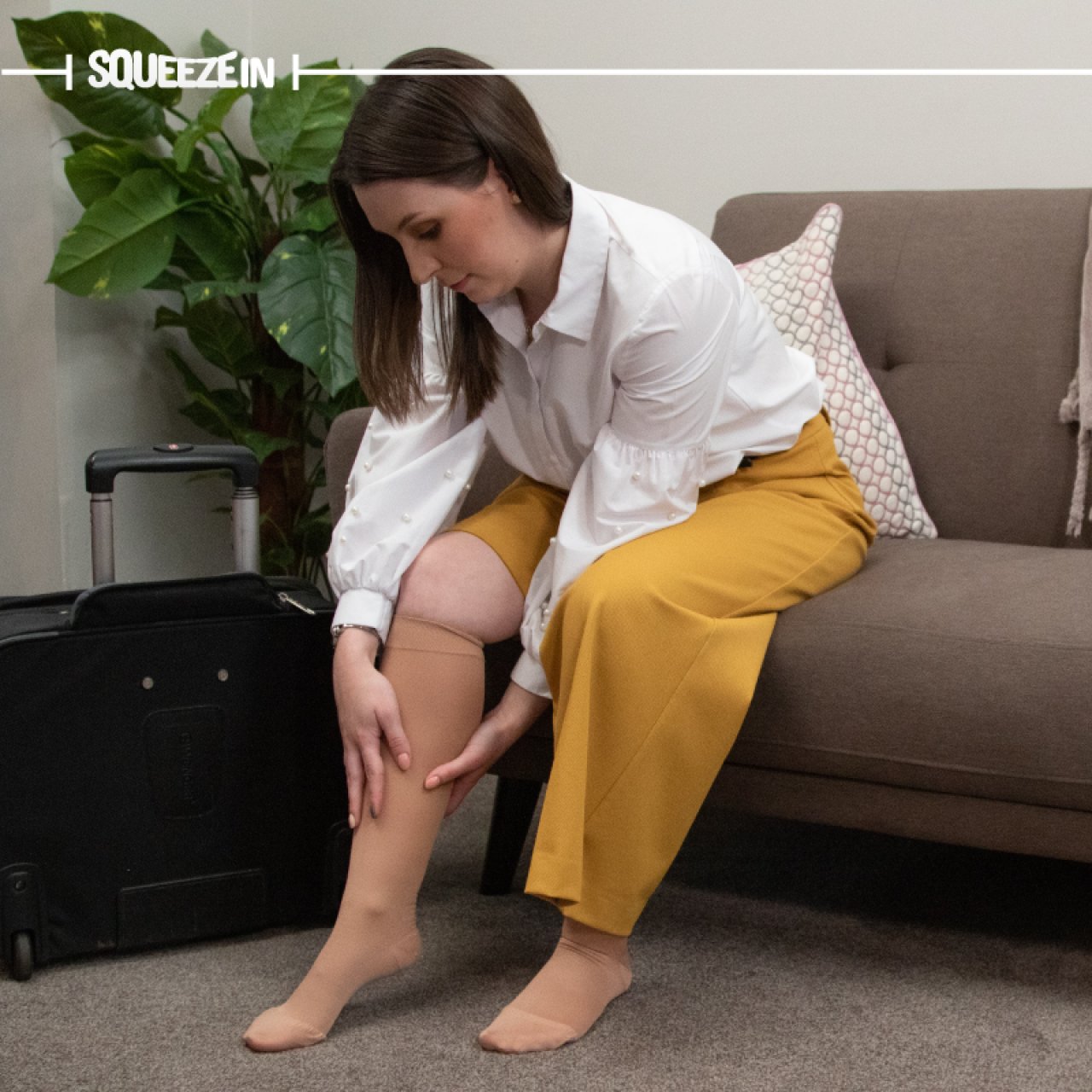Whether you are travelling a short distance, driving for hours at a time or flying, travelling has a way of making us feel tired. There are a few things that you can do to help you alleviate that feeling of fatigue and keep your body, and legs feeling healthy.
#1 Stay hydrated

How to fight fatigue when travelling
In order to stay well hydrated you should aim to drink at least 6-8 glasses or cups of fluid a day.
This can be made up of water, sugar-free juice, tea, coffee or milk, although you should try to limit caffeinated drinks. Staying hydrated will reduce symptoms of headaches, dizziness and fatigue.
#2 Stretch your legs

How to fight fatigue when travelling
If you are able to you should aim to regularly stretch your legs when travelling. This could be for as little as a few minutes and will still be beneficial. Try walking up and down the train isle or stopping the car for a quick walk.
If you are flying this summer, you may be encouraged to stay seated for long periods of time. Or if you are unable to get up and stretch your legs there are still some things that you can do, see #3.
#3 Do leg exercises

How to fight fatigue when travelling
If you are unable to get up and stretch your legs, you can do a few simple leg exercises while sat down in your seat.
Try rotating your feet around and then moving them up and down to help reduce swelling and improve circulation. See our simple leg exercises video here.
#4 Wear compression

How to fight fatigue when travelling
When travelling for long distances your legs and feet may feel heavy, achy, and may swell slightly. To reduce these symptoms and improve the circulation in your legs you should consider wearing compression socks or stockings.
Activa Class 1 light compression is perfect to wear when travelling. Browse our light compression range here.
*If you’re new to compression or have concerns about your legs or feet, please talk to your GP, nurse or pharmacist for further advice on whether compression might be suitable for you.